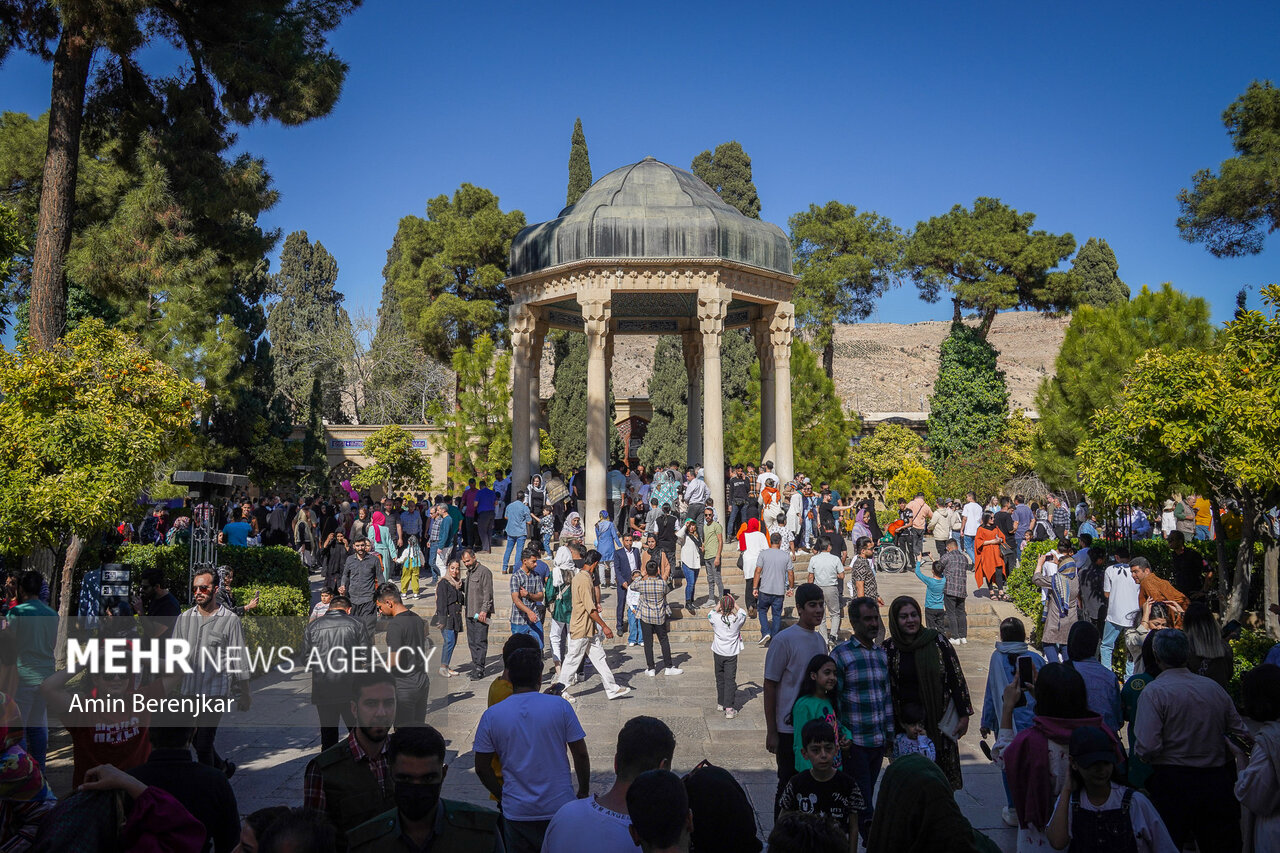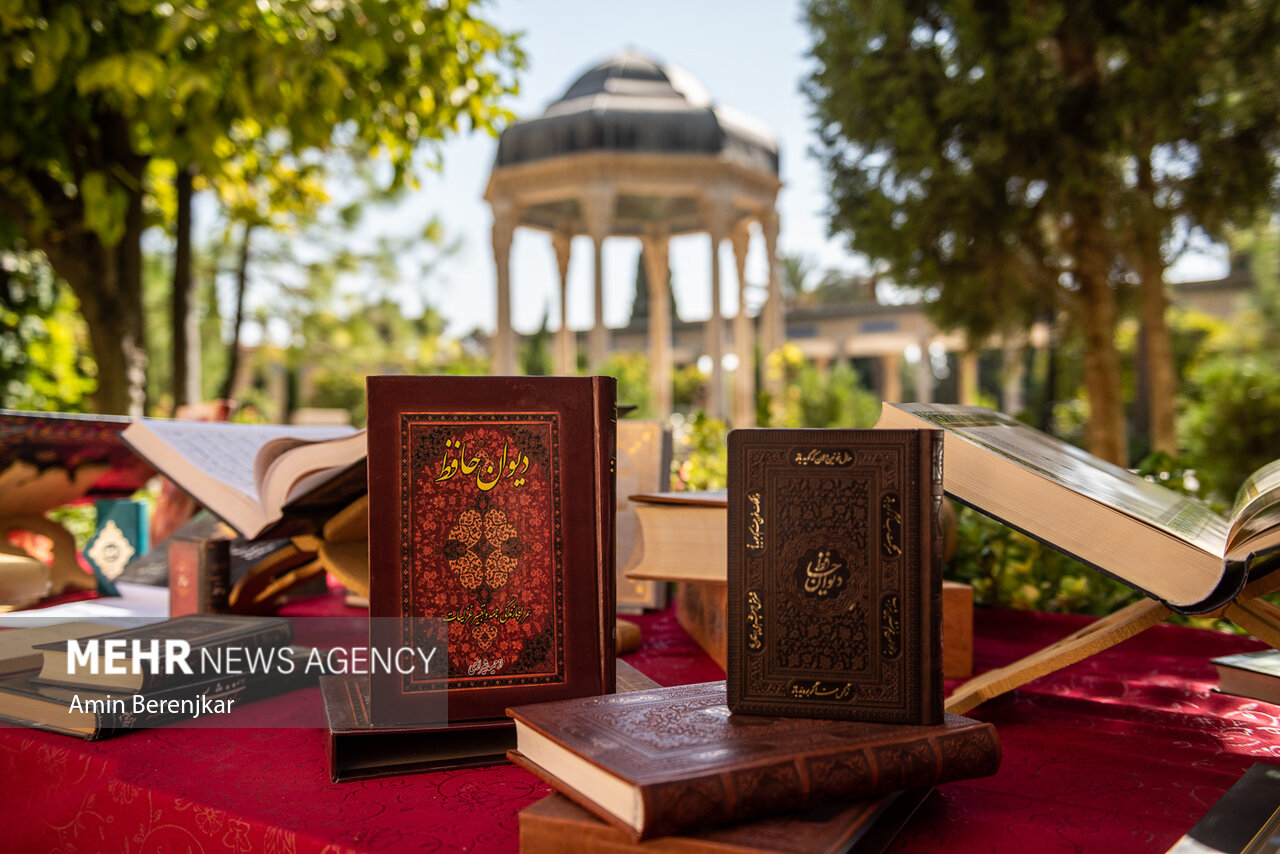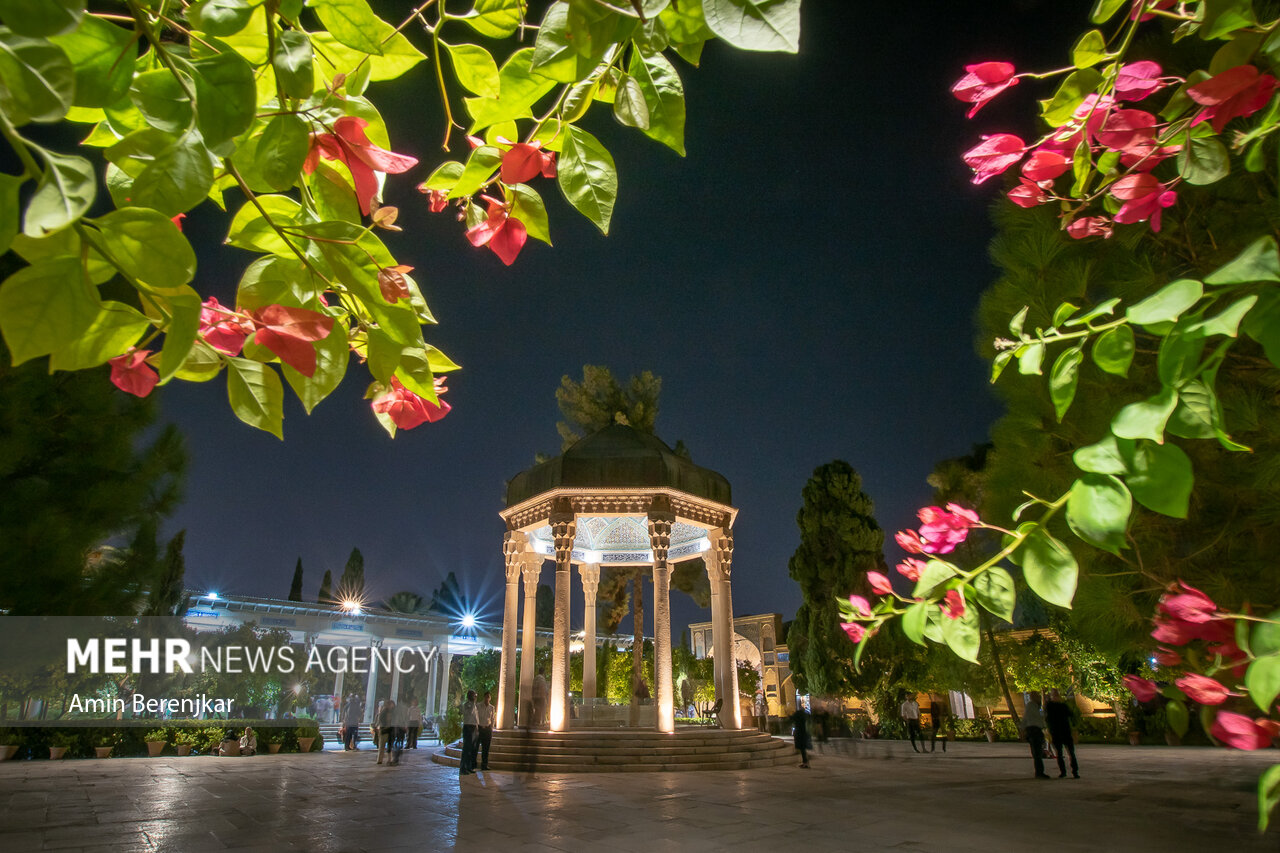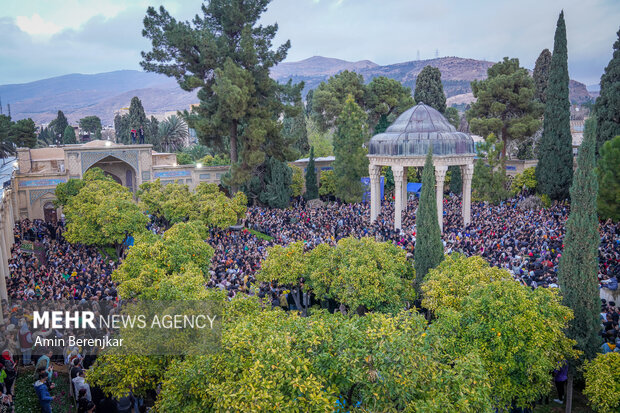October 11 is designated National Hafez Day in the Persian calendar. It is a day in which the great Persian poet Hafez is honored in Iran. Every year Hafez Commemoration Week is held during the week leading to Hafez Day.
Born in Shiraz between 1310 and 1325, Khajeh Shamseddin Mohammad Hafeẓ Shirazi, known by his pen name Hafez, is best known for his collection of poetry known as “Divan,” which is still read and recited widely across Iran and the world.
His ghazals, often exploring themes of love, spirituality, and the human connection to the divine, have transcended time, influencing Persian culture, Sufism, and world literature.
Having memorized the Holy Qur’an at a young age, he was bestowed the title of “Hafez”.

Among Iranians, Hafez is known as “Lisān al-Ghayb,” literally meaning someone who knows about hidden secrets.
Poetry, particularly that of Hafez, occupies a significant place in Iranian society. This art form is an important part of the lives of all Iranians.
The spiritual enlightenment that Hafez attained and personified traveled beyond the borders of Iran and influenced the great minds of the world, in both the East and the West.
The poetry of the Nightingale of Shiraz has had a hypnotic influence not only on the East, but his verses also inspired poets in the West.
Founding oriental studies as an academic field, the prominent orientalist, Joseph von Hammer Purgstall, translated the Diwan e Hafiz in 1846. The translated work inspired Goethe to create a collection of poems titled The West-Eastern Divan.

The poetry of Hafez led Goethe, the legendary German philosopher, to call him “Saint Hafiz” and a “Celestial Friend”.
For Goethe, Persian poetic language reached its zenith in the verses of Hafez in whom he was able to find the magnificence of ideas and the view of the world he had been searching all his life.
Inspired by Goethe’s West-Eastern Divan, a number of German poets, including Friedrich Ruckert and August von Platen, composed poems on the model of Ghazal.
Hafez’s poetry is considered the very epitome of the Ghazal tradition.
Prominent among the German thinkers fascinated by Hafez was Friedrich Nietzsche, who repeatedly mentioned him in his seminal works.
Nietzsche was deeply interested in Hafez and praised him as an ideal poet and spent many years reading his works. The Persian poet appears almost a dozen times in the writings of Nietzsche.
In a poem dedicated to Hafez, Nietzsche glorifies the insight of the Persian poet and his poetry.

Faal-e-Hafez” (augury)
Among all Persian poets, Hafez occupies a special place for Iranians.
He composed some 500 ghazals, 42 Rubaiyees, and a few Ghaseedeh's over a period of 50 years. His works are often found in the homes of Persian speakers, who learn his poems by heart and use them as everyday proverbs and sayings.
They not only consult him to foresee their future through “Faal-e-Hafez” (augury), but the poetry of the celebrated poet has had a lasting influence on great people, including Shahriar.
Reported by Tohid Mahmoudpour

























Your Comment